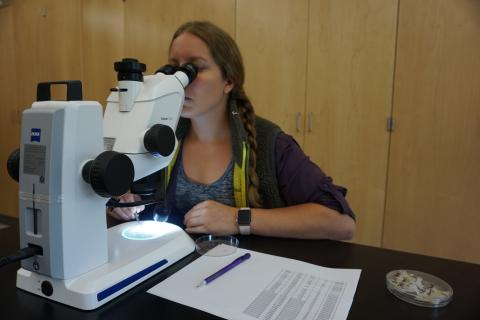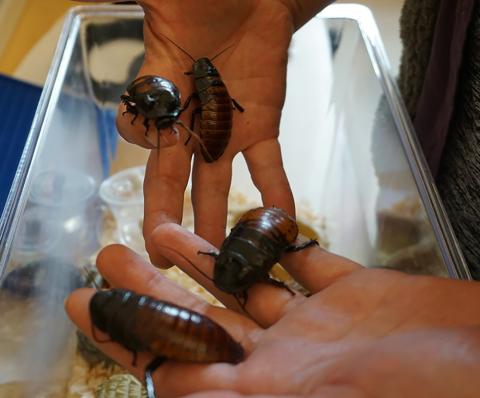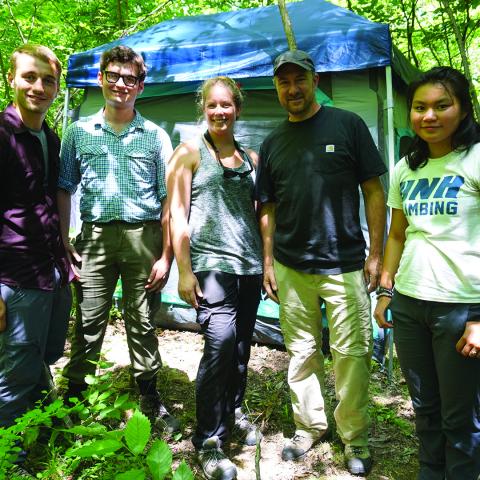
Driven by an insatiable curiosity and love of insects, Breanne (Bre) Aflague is currently working with biocontrol wasps to mitigate the impact of the emerald ash borer, a non-native beetle from Asia that has already killed millions of ash trees across the country. The Bourne, Massachusetts native, who has wanted to work with insects since she was 7, is often asked if she has a favorite. (Spoiler alert: She doesn’t.)
Bre Aflague: I always tell people that ‘I work with bugs and trees’ and take it from there. You never know: sometimes people think insects are really gross and want to stop talking about it right away, but other people are curious. If it’s appropriate, I go on to tell them how lucky I am to work outside — rolling over rocks and logs, peeling bark, collecting insects — doing the things that I always gravitated toward as a child.
Aflague: My answer to this question makes me feel spoiled, because I have an incredible group of colleagues, friends and family supporting me and my research. My advisor, Jeff Garnas, family and friends have been there every step of the way. Cutting trees down, recording data, releasing parasitoids...you name it! So I guess I'm fortunate because we seem to learn together as a group.

Bre Aflague shows us her Madagascar hissing cockroaches.
Aflague: My current research is focused on the emerald ash borer (EAB), which has become the most costly and destructive pest to invade the United States. These invasive, wood-boring beetles attack North American ash species, which lack defense mechanisms against them, causing rapid tree mortality.
Biological control is one of the most promising strategies to manage EAB populations. In the Garnas Lab, we work with biocontrol wasps, which lay their eggs inside the EAB larvae. We hope to protect smaller immature ash trees with long-term ash conservation in mind both in the state of NH and beyond. Our work is also more broadly applicable to biocontrol systems and forest pests beyond EAB.
Aflague: I am constantly humbled by how much I don't know, which also drives some aspect of my curiosity and passion. So far, I guess I've discovered that I'm not surprised at how much I don't know, but heartened about how much I've learned.
Aflague: As a biologist, I love and am interested in too many things! I ask tons of questions, work on too many projects, and have trouble focusing on ONE research question at a time.

Bre Aflague, third from left, with Jeff Garnas and the EAB research team.
Aflague: An insane sense of curiosity!
Aflague: Honestly, this is cheesy, but I have wanted to be an entomologist since I was 7 or so. So, I am (technically) following my dreams.
Aflague: The programs at UNH are great and the NREN department was exactly what I was looking for. I had a great connection with my advisor and everyone I met when visiting, and couldn't pass up such a phenomenal opportunity.
Aflague: I would love to be a project leader at a governmental agency, where I could continue my work with invasive insects and biological control. Teaching would also be amazing!
Learn more